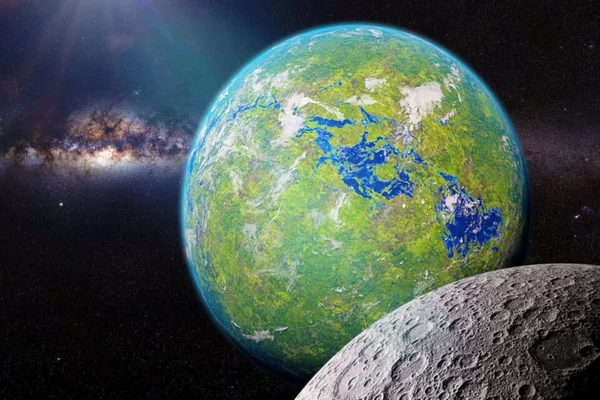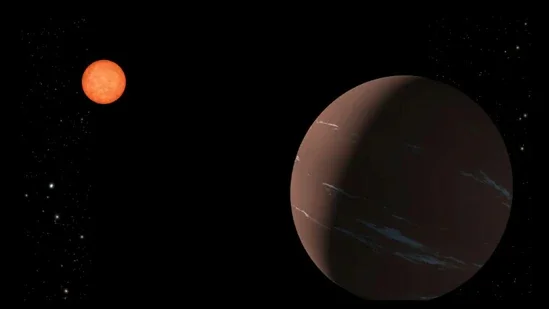TOI-715 b, a newly discovered ‘super-Earth,’ is located 137 light-years away from Earth in the habitable zone of its parent star.
About TOI-715 b:
- TOI-715 b is a type of ‘Super Earth’, about 137 light-years away from the Earth and revolves around its parent star.
- It lies in the conservative habitable zone, which could give the planet the right temperature for liquid water to form on its surface.
- TOI-715 b’s parent star is a red dwarf, which is smaller and colder than the Sun.
- Red dwarfs are the smallest main sequence stars, with a surface temperature of 2,000–3,500 K, and are smaller and colder than planets orbiting stars like the Sun.
- This allows planets to be closer while remaining safely inside the star’s habitable zone.
- A conservative habitable zone is defined by its capacity to maintain temperatures that could allow liquid water to exist on a planet’s surface.
- The tighter orbits suggest that planets crossing the faces of their stars, as viewed by space telescopes, happen more frequently.
- For planet b, this occurs once every 19 days, constituting a ‘year’ on this peculiar world.
- The planet is believed to be only slightly larger than Earth and may reside just inside this conservative habitable zone.
- This planet has also been included within the habitable zone likely to be examined closely by the James Webb telescope.
- There is a potential for the discovery of more livable worlds, but other factors for surface water presence need to be discovered.
Ref: Source
| UPSC IAS Preparation Resources | |
| Current Affairs Analysis | Topperspedia |
| GS Shots | Simply Explained |
| Daily Flash Cards | Daily Quiz |



